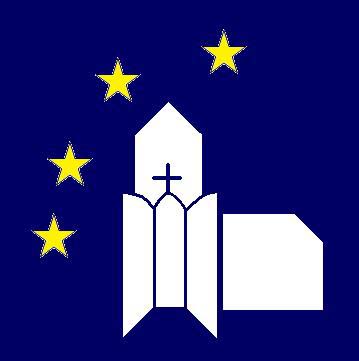As on other occasions, because of the task we have undertaken as the European Network Church on The Move, we reflect on the most central issues at this difficult time for the political and civil life of our continent. They are urgent and important, and we address them on the basis of the profound values that our faith in the Gospel shows us. We do so in the knowledge that we are openly opposing, in the name of our strongly pro-European position, strong interests, constraints, unhealthy international relations and also the sensitivity of a part of public opinion. We resolutely call on the European institutions to take action based on criteria of human fraternity and reason that draw on the best moments and legacies of European history.
We raise three questions:
1) In the world we are faced with a general injustice. An evil that affects everyone, poor and rich, can be tackled and treated radically differently depending on where you are born and live. The information available in Our World in Data Covid Vaccination dataset tells us that every human being is treated differently owing to the interests of the major pharmaceutical companies and the resistance of too many governments to a policy that decides in favour of the common good and equality. The European Union bodies have not lined up to support "the initiative presented by India and South Africa in the World Trade Organization, requesting a temporary suspension of intellectual property rights relating to vaccines, equipment and therapies to deal with Covid-19" Hope has now opened up. On May 20, the European Parliament approved, by a majority of only nine votes, a text calling for the EU to move in this direction. The final vote will be in the assembly on June 17. A mobilization of civil society, NGOs and Christian opinion is necessary for things to change and for a minimum of international solidarity to be concretely manifested. Pope Francis has spoken words of truth like no other leader in the world ("a variant of this Covid is closed-minded nationalism, which prevents an internationalism of vaccines"). One initiative that will force the Commission to reconsider its position is to use the consensus organization provided for in Articles 114 et seq. of the Union by means of a large collection of signatures in various states. This is under way (see No profit on pandemic).
2) The problem of migrants cannot be solved only by getting used to deaths at sea, ferocious detentions in camps in Libya and repatriations to Africa often done illegally and brutally. This is the story now, this is the brutal solution, and the situation will not improve. The causes are well known: the economic and social situations and wars of countries in great distress, terrorism of Islamic extraction, external military presence and the exploitation of local resources. A reception policy on our continent that is managed in accordance with security criteria, based on the distribution of migrants among the various EU countries in a mandatory, rationally distributed manner and with the provision of strong integration structures, becomes inevitable and urgent. This line is demanded not only and above all for humanitarian reasons, but also, reasoning according to a logic of foresight over the long term, to deal with the demographic decline and to benefit from youth and active forces. Religions must play a decisive role in this perspective.
3) A new cold war has long since restarted, the 'enemy' countries are now Russia and China. This situation is not much in the public eye, distracted by the pandemic, the media and more immediate difficulties. The European Union, whilst increasing its military expenditure everywhere, is unable and unwilling to express its own political action and is passively watching the situation, conditioned by the NATO membership of almost all its countries and by the silent but very effective lobby of the military-industrial establishment. This May and June, the largest military exercise (Defender Europe 21 with tens of thousands of soldiers involved) since the fall of the Berlin Wall is taking place on European territory. And throughout the pandemic, the war industries have been the only industries exempt from the suspension of production.
We believe that the EU's position should be radically different. Nuclear rearmament is evasingly destroying international standards. There is no awareness of the gravity of the situation. The total abstention of EU states from signing the UN Treaty on the Prohibition of Nuclear Weapons is scandalous.Europe should be a point of reference in the world for a policy of mediation and peace in conflict areas and "should launch its own initiatives or promote and support those of member states or civil society organizations on non-violent conflict prevention, mediation and management actions" (from the document of EN-RE and thirty other organizations fifty years after the signature of the Treaties of Rome).
Europe has a future ahead of it when it combines the will to tackle all kinds of problems together (environmental problems first and foremost), overcoming local and national nationalisms, with the ability to look far ahead, knowing how to be secularly inspired by Christian values and inter-religious brotherhood. This is the fervent hope of many grassroots associations and of the European Network Church on the Move.
European Network Church on the Move (EN-RE)
